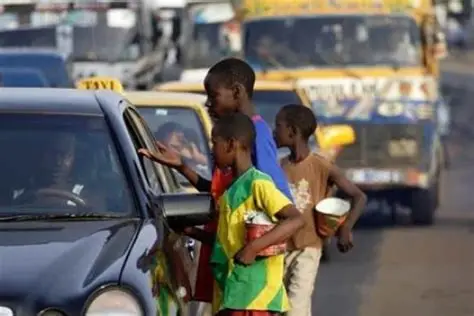Published
7 months agoon
By
Adubianews
The Bono Region is facing a troubling surge in child streetism and alms begging, a situation made worse by the absence of any rescue shelter for vulnerable children. Peter Biya Yah, the Bono Regional Director of the Social Welfare Department, says this gap is undermining efforts to get children off the streets and into care.
He stressed that the government cannot do it alone and called for urgent support from wealthy individuals, religious institutions, non-profits, and private companies to help provide shelter facilities.
Speaking at the launch of the “30 Days of Activism Against Domestic Violence” in Sunyani, Mr. Yah highlighted that the streets of the regional capital, especially areas like the Nana Bosoma Central Market and Sunyani Business District, are now heavily populated with children begging or sleeping rough. He lamented that without shelter options, interventions remain temporary and ineffective.
He also pointed to broader challenges facing the Social Welfare Department and DOVVSU, including a severe lack of logistics such as vehicles to support case follow-ups and victim rescues. Without the necessary tools, officers are unable to respond quickly or pursue prosecutions efficiently, creating setbacks in both child protection and gender-based violence response efforts.
Deputy Superintendent of Police Beatrice Korsah, Bono Regional Coordinator for DOVVSU, revealed that the campaign would move beyond formal spaces and take public education to markets, lorry parks, churches, and mosques. She noted that cases of gender-based violence, especially against women, remain alarmingly high in the region, often leaving victims emotionally and physically broken.
DSP Korsah urged the public to support efforts by reporting abuse and streetism cases to either DOVVSU or Social Welfare authorities. She said community involvement is crucial to saving victims and holding abusers accountable, stressing that silence only empowers violators and perpetuates the cycle of abuse and neglect.

























